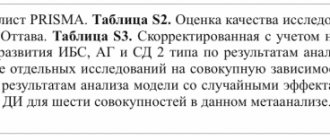Whatever you are sick with - atrophic bronchitis or bronchiolitis, a blood test is a test that can tell what happened to the body.
This is due to the fact that when the state of health changes, the blood formula changes, which is reflected in the analysis and makes it possible to talk about the degree of pathology.
Bronchitis in children is no exception. A blood test can tell a lot, so let's look into the details to decipher it.
How does blood composition change during bronchitis?
Changes in the blood count during bronchitis are recorded according to 4 indicators; we will consider each of them separately.
Leukocytes
An increase in white blood cells in the patient's blood can indicate both bacterial and chronic bronchitis. In case of a viral nature of the disease, they decrease, and in case of an allergic nature, they remain within the reference values.
ESR
In almost all cases, an increase in this indicator will be recorded. And only with the allergic nature of bronchitis can the erythrocyte sedimentation rate be normal or slightly increased.
Lymphocytes
Increased in all cases except one - when chronic bronchitis is diagnosed. In this case, lymphocytes remain normal or tend to decrease. This way you can distinguish acute bacterial and obstructive bronchitis from each other.
Hemoglobin
Typically, the hemoglobin level is elevated during bronchitis.
Diagnosis and treatment of bronchitis
Treatment of obstructive bronchitis in adults at the A-Media clinic is prescribed only after accurate confirmation of the diagnosis. This requires an appointment with a general practitioner, during which he will conduct an examination, find out the patient’s complaints and collect anamnesis, prescribe the necessary examination, and based on the results obtained, draw up a treatment plan and give all the necessary recommendations.
To diagnose bronchitis, your doctor may order the following types of tests:
- auscultation
- blood test
- chest x-ray
- bronchoscopy
- and other examination methods.
How to treat bronchitis in adults is decided by a specialist, based on the characteristics of the course of the disease.
Since chronic and acute bronchitis in adults have different symptoms, the treatment of these two forms of the disease is planned differently.
Treatment of acute bronchitis
When diagnosed with acute bronchitis, treatment includes:
- antiviral or antibacterial therapy
- taking medications that suppress the cough reflex
- taking expectorants
- physiotherapeutic procedures.
Treatment of chronic bronchitis
If you are diagnosed with chronic bronchitis, treatment during periods of exacerbation is planned as follows:
- taking medications that eliminate inflammation of the bronchi
- taking medications that restore bronchial patency
- antibacterial therapy
- phytotherapy.
The advisability of taking a particular drug for bronchitis is determined by the doctor.
Bronchitis in pregnant should be treated especially carefully to avoid pathologies of fetal development.
Blood biochemistry: what to pay attention to?
When a person gets sick with bronchitis, changes are recorded not only in a general blood test. Biochemical parameters undergo changes, which can be used to judge the severity of the disease. The level of globulins increases. This indicates the occurrence of an inflammatory process; the higher this level, the more serious the inflammation.
A marker of inflammation is the appearance of C-reactive protein. If we are not talking about a newborn, the level of this indicator should not exceed 5 mg/l. The toxic nature of bronchitis causes an increase in liver parameters - ALT and AST.
The listed biochemical indicators are the main ones by which one can judge the severity of the disease, for example, if a smoker has bronchitis. For clarification purposes, the doctor may prescribe the analysis of other enzymes in a biochemical analysis.
Diagnosis of bronchitis
To diagnose bronchitis, neither an X-ray examination nor additional tests are needed.
To make a diagnosis, the doctor simply needs to perform auscultation - listen to the lungs using a phonendoscope - an experienced pediatrician will immediately “hear bronchitis”. Additional examinations are prescribed
in order to determine the type of bronchitis - viral or bacterial - the purpose of therapy depends on this. As you know, antibiotics have no effect on viruses, so they are prescribed only if the doctor believes that bronchitis is bacterial in nature. A blood test can tell you this. Also, the pediatrician determines the type of bronchitis by collecting an anamnesis (medical history): how long has the child been sick, how the disease progresses, how long ago was it sick last time, how was it treated, etc.
X-ray
for bronchitis, they may be prescribed in order to exclude pneumonia, a possible complication of this disease. Unfortunately, it is difficult to diagnose pneumonia in young children without an x-ray - local changes in some segments of the lungs cannot always be heard.
Erythrocyte sedimentation rate
This part refers to a general clinical blood test and is a serious marker of trouble in the body. An increase in ESR indicates that an inflammatory process is occurring somewhere in the body. The higher the erythrocyte sedimentation rate, the more severe the inflammation. Its specific location is determined using other laboratory and instrumental studies; ESR only indicates its presence.
The erythrocyte sedimentation rate is tested whenever you have a complete blood count. Depending on the laboratory where the study is performed, the methods for determining ESR and specific values may vary, but the result will always indicate the presence of inflammation or its absence.
In the case of bronchitis, this result serves as another confirmation of the presence of pathology in the bronchi (localization is determined by other methods).
According to the form of its course, bronchitis is divided into acute and chronic.
Chronic bronchitis
is a chronic inflammation of the bronchial tubes.
Chronic bronchitis is considered if the cough continues for at least three months a year for two years in a row. According to etiology
(causes of occurrence),
viral, bacterial and allergic bronchitis are distinguished.
More than 80% of bronchitis is viral, infection occurs through airborne droplets, and proceeds like a normal acute respiratory viral infection, with the difference that the viruses that cause bronchitis prefer to “settle” in the bronchial tissue.
How to donate blood for analysis
There are several rules that you need to adhere to in order for the blood test results to be reliable.
Say no to stress
It's hard to believe, but simple stress can change your blood formula. Try to be calm the night before your lab test. Come to the clinic 10-20 minutes before the appointed time, fill out all the necessary documents at the receptionist and sit quietly before the procedure.
I'll have to starve
A general (and biochemical) blood test is scheduled for the first half of the day. Most often - in the morning. In this case, the last meal should be no later than 20 - 21 hours. In the morning before going to the clinic, it is important not to eat or drink anything. But you can drink still water without flavoring.
The blood formula changes under the influence of food and liquid, the analysis after a meal will be unreliable.
Removing bad habits
At least a couple of days before the test, you need to give up cigarettes, and a day before the test, you need to stop drinking alcohol (alcohol for bronchitis will affect the test results). Looking ahead, let's say that neither alcohol nor cigarettes are recommended when taking medications - antibiotics.
Warn the laboratory technician about the characteristics of your body: perhaps you are afraid of blood, maybe you can’t tolerate the test well, or you have poor clotting ability? The nurse should know about everything in order to understand how to help you in case of any unforeseen situation.
If you are taking a course of medications, you should stop taking them a couple of days before the test. If not possible, inform the laboratory technician about all drugs. They can affect your blood count, and the specialist, knowing what medications you are taking, will be able to navigate the results.
How to treat bronchitis
There is no universal treatment regimen for bronchitis.
The choice of therapy depends on many factors: the type of bronchitis (viral or bacterial), duration, characteristics of the course of the disease, cough (it can be dry, wet, only during sleep or after sleep, etc.), the condition of the child.
When treating bronchitis
, it is very important that normal air humidity (40-60%) is maintained in the room where the child is located. It is necessary to protect the patient from tobacco smoke (passive smoking during bronchitis is very dangerous).
Treatment of exacerbations of chronic bronchitis
The signal for the onset of an exacerbation is not so much a cough and sputum production (although they, as a rule, intensify, and the sputum acquires a yellowish or greenish tint), but rather the appearance of weakness, a feeling of malaise, fatigue, sweating, and increased body temperature. It is these symptoms that are considered a reason to consult a doctor and begin active treatment measures.
- It is necessary to follow a home regime until the severe cough and symptoms of intoxication disappear.
- Drinking plenty of warm drinks (up to 2 liters per day) will not only help in the fight against intoxication, but also improve sputum discharge. Expectorants and mucolytics can also soften the cough, which, however, should not be taken without consulting a doctor.
- Active coughing is important in case of an insufficiently expressed cough reflex. Coughing is carried out in different positions (on the right and left side, lying on the stomach with one shoulder lowered below the level of the bed, first one, then the other).
- Since most cases of exacerbations of chronic bronchitis are caused by viruses, self-medication with antibiotics is unacceptable! Antibacterial drugs should only be prescribed by a doctor!
- If fever is poorly tolerated and if body temperature rises above 38.5 °C, antipyretic drugs are indicated ( remember that acetylsalicylic acid (aspirin) is strictly contraindicated for children under 16 years of age!).
- In case of bronchospasm, inhalation of bronchodilators may be required to reduce the severity and duration of coughing attacks. The doctor will select the most suitable drug for you and explain how to use it correctly.
Causes of bronchitis
Inflammation of the bronchi is a disease caused by infection. Its causative agents are bacteria (staphylococci, pneumococci and streptococci), viruses (adenovirus, influenza virus and parainfluenza and others) and atypical representatives such as chlamydia and mycoplasma. In rare cases, bronchitis can be caused by a fungus.
The risk group for developing bronchitis includes people over 50 years of age and patients with concomitant chronic pathologies of internal organs. Nicotine and alcohol addiction also make the human body more susceptible to these infections and contribute to the development of complications.
Exposure to chemical factors can also cause the development of bronchitis. Chemical factors include toxic compounds found in the atmosphere of industrial cities, increased levels of smoke and/or dust in the air, and work in “harmful” industries.
Symptoms of bronchitis.
Since acute bronchitis develops against the background of ARVI, it is important to monitor your condition and know the markers of the onset of the disease:
- A sudden increase in body temperature on days 5-7 of illness to 38 degrees, weakness, lethargy.
- The addition of a dry, hacking, paroxysmal cough. A cough with sputum production is considered productive.
- Paroxysmal cough, which occurs more often at night and causes pain in the abdominal muscles and chest.
- Wheezing when breathing. When the bronchi become inflamed, their lumen decreases significantly, causing breathing to become harsh and shallow.
In most cases, acute bronchitis lasts up to two weeks and is accompanied by rhinitis and tracheitis. The chronic form is characterized by cough with sputum, shortness of breath, and low-grade fever.






